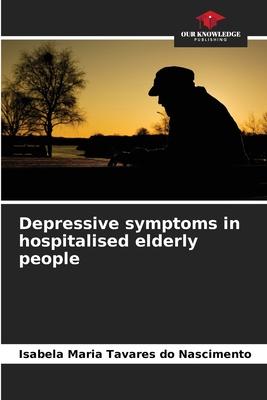Depression is the most prevalent mental disorder in many countries around the world and is associated with functional impairment and high morbidity and mortality rates. Depression and depressive disorders are common in the population as a whole and especially among the elderly. In the elderly population, depression is among the most frequent chronic illnesses that increase the possibility of developing functional disability, affect quality of life, increase financial costs, overburden health services and can lead to the most serious outcome of the illness, suicide. On the other hand, the presence of comorbidities and the use of polypharmacy, common among the elderly, make the diagnosis and treatment of depression even more complex. In this way, it can be seen that early detection of depressive symptoms in the elderly in a hospital setting is important, because the presence of these symptoms can be responsible for loss of autonomy and worsening of pre-existing pathological conditions, as well as the risk of suicide.
| FindBook |
有 1 項符合
Depressive symptoms in hospitalised elderly people的圖書 |
 |
Depressive symptoms in hospitalised elderly people 作者:Tavares Do Nascimento 出版社:Our Knowledge Publishing 出版日期:2024-03-27 語言:英文 規格:平裝 / 52頁 / 22.86 x 15.24 x 0.3 cm / 普通級/ 初版 |
| 圖書館借閱 |
| 國家圖書館 | 全國圖書書目資訊網 | 國立公共資訊圖書館 | 電子書服務平台 | MetaCat 跨館整合查詢 |
| 臺北市立圖書館 | 新北市立圖書館 | 基隆市公共圖書館 | 桃園市立圖書館 | 新竹縣公共圖書館 |
| 苗栗縣立圖書館 | 臺中市立圖書館 | 彰化縣公共圖書館 | 南投縣文化局 | 雲林縣公共圖書館 |
| 嘉義縣圖書館 | 臺南市立圖書館 | 高雄市立圖書館 | 屏東縣公共圖書館 | 宜蘭縣公共圖書館 |
| 花蓮縣文化局 | 臺東縣文化處 |
|
|
圖書介紹 - 資料來源:博客來 評分:
圖書名稱:Depressive symptoms in hospitalised elderly people
|











